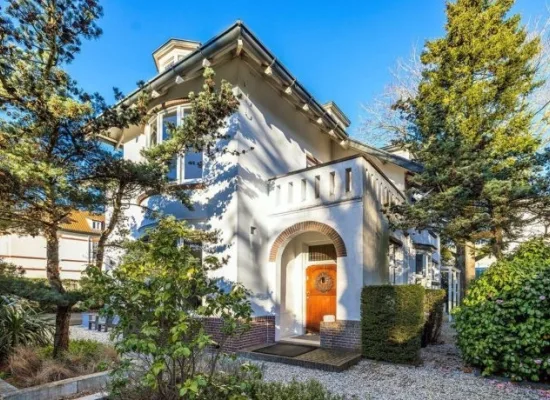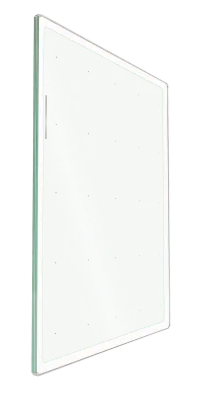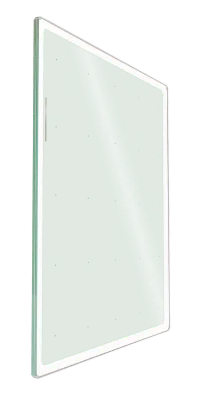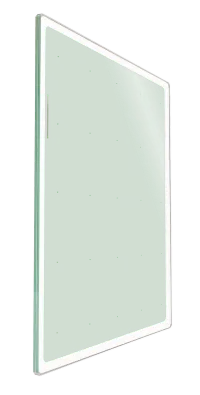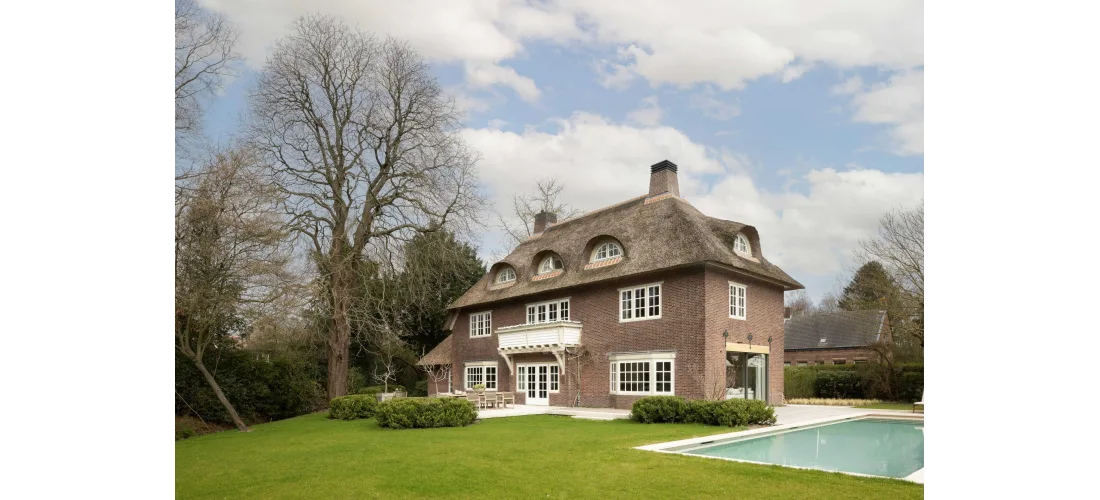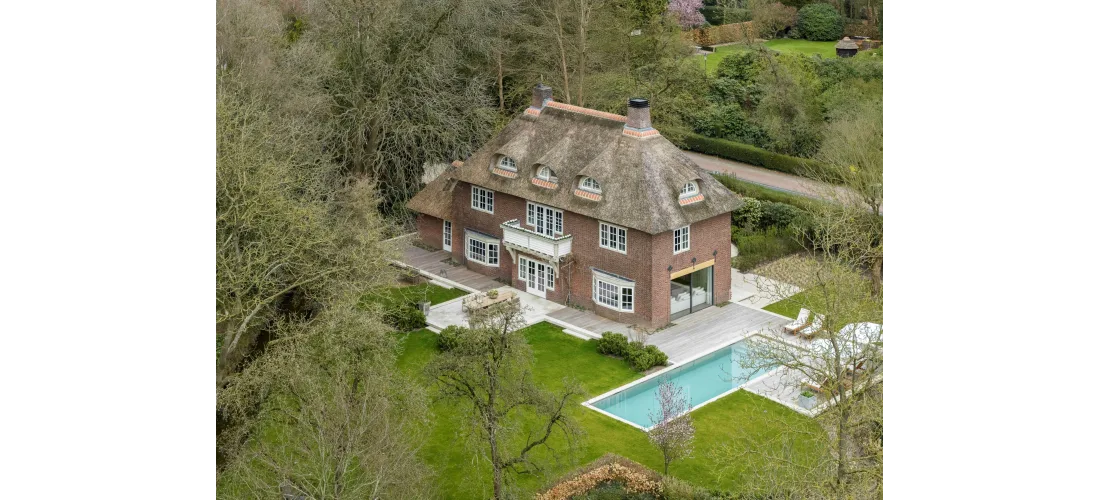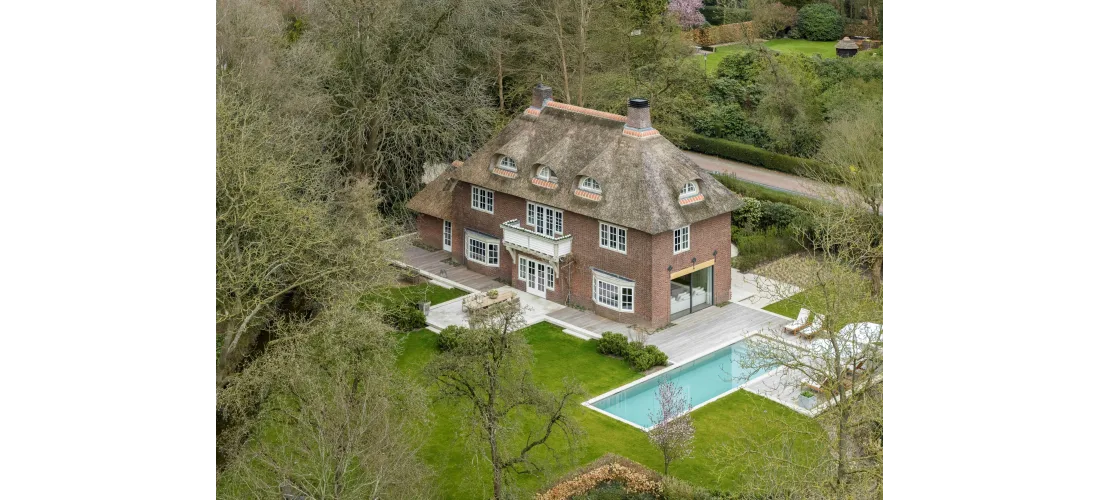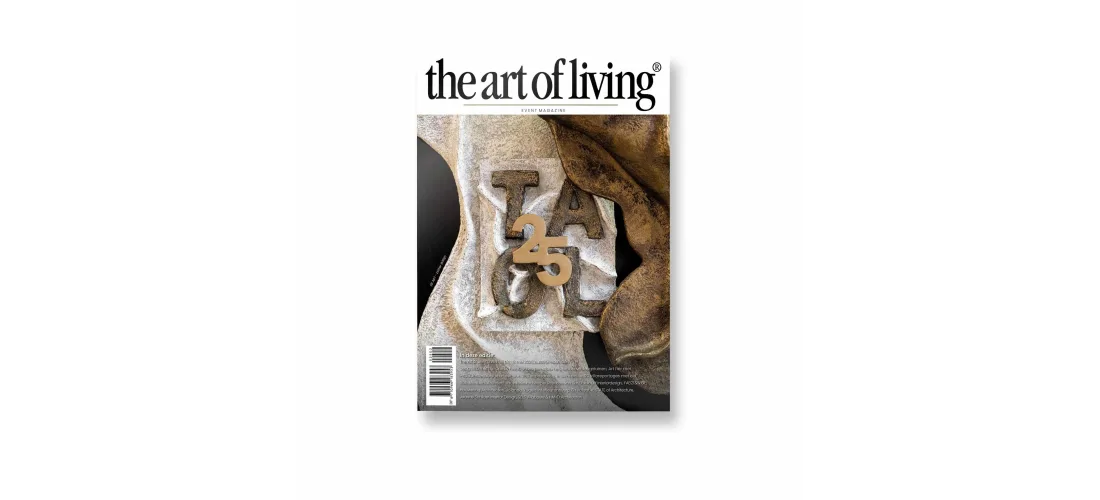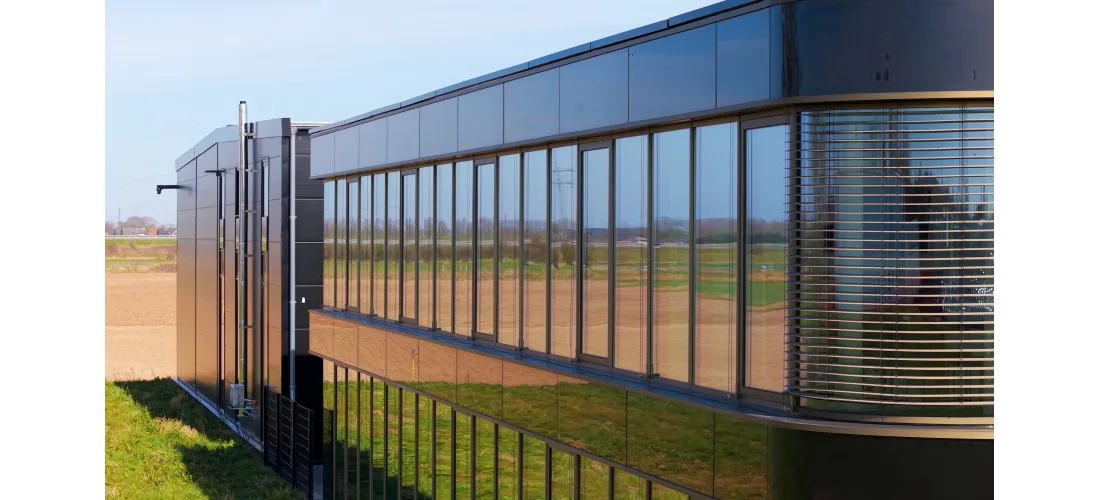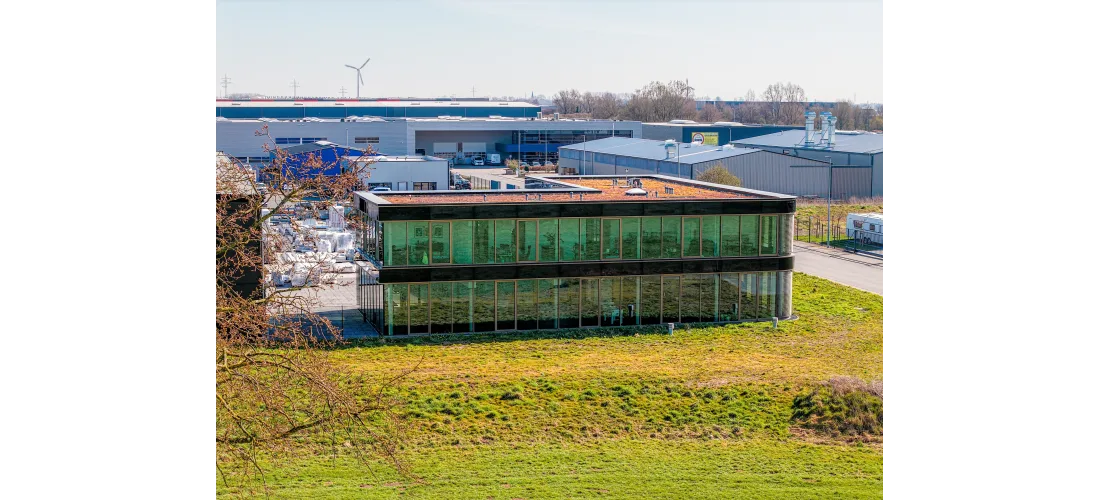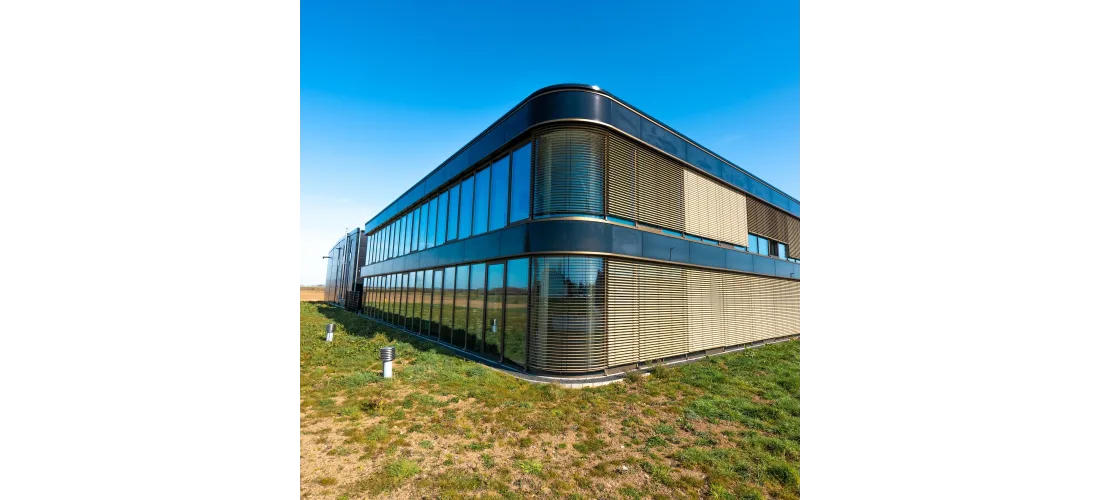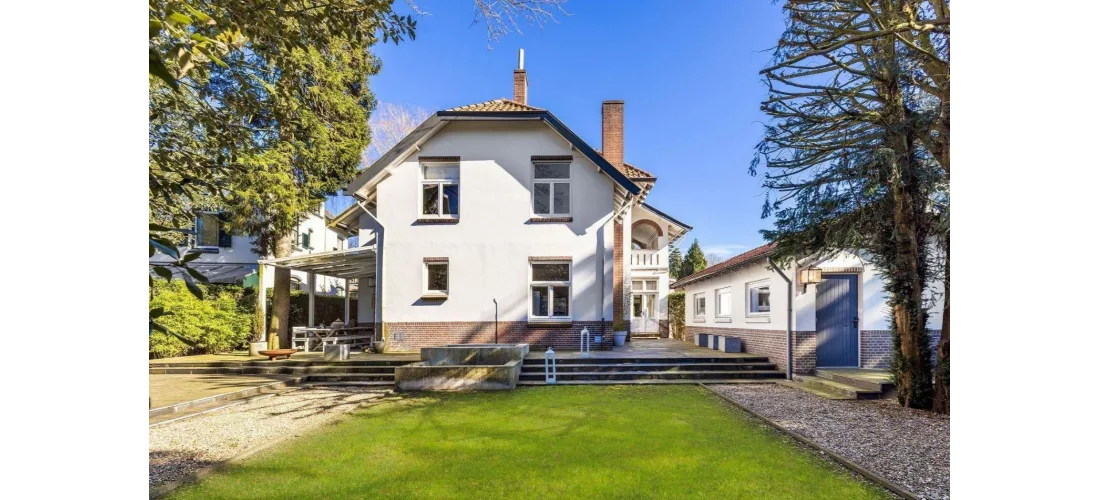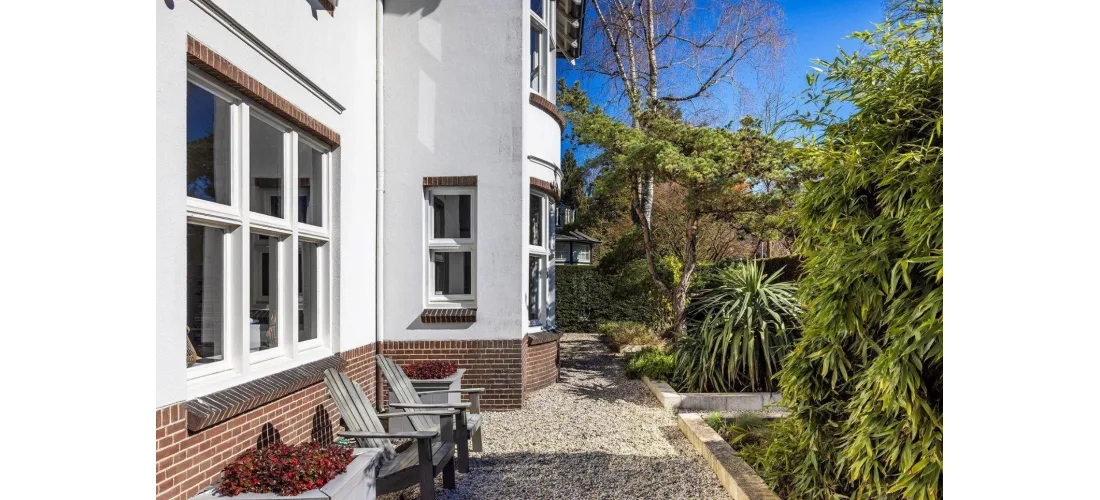What is insulating glass?
BENG glass provides insulating glass with the best U-values currently achievable. With insulation values starting at 0.35, this vacuum glass is among the best insulation solutions available worldwide.
Traditional insulation glass such as HR++ and triple glass uses a gas-filled cavity. This acts as insulation, but remains sensitive to heat conduction and wear and tear. Instead of gas, BENG glass has a complete vacuum between the panes of glass, making heat and sound almost impossible to transfer. With only 8.3 mm glass thickness, you thus achieve an insulation value that is 3× better than HR++ and 2× better than triple glazing. BENG glass:
- insulates 3× better than HR++ and 2× better than triple insulation glass
- fits into existing window frames, triple glass does not
- lasts up to 2× longer without loss of insulation value
- reduces additional noise from 36 dB (vs. 33 dB for triple glazing)
- lets in 15% more natural daylight than triple glazing
- consists of 30% less material than triple glazing and is therefore lighter in weight and more durable
- remains stable in slope performance, where regular insulating glass decreases up to 60%
- Completelyprevents condensation on the inside
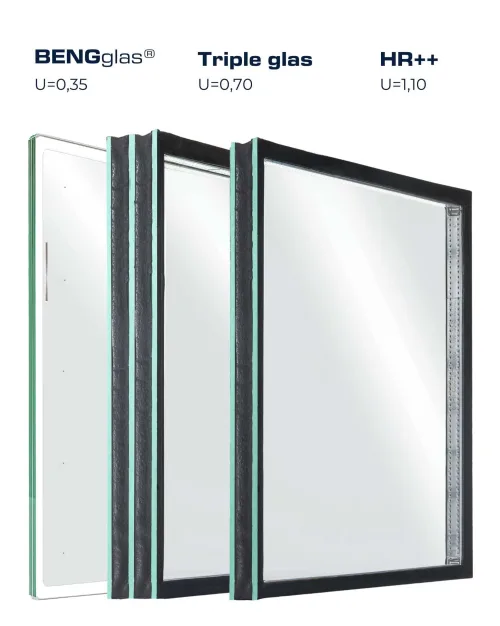
Differences at a glance
| BENGglas | Double glazing | Triple glazing | |
|---|---|---|---|
|
U-value (W/m²K) |
>0,35 | 1,10 | 0,70 |
|
Thickness from (mm) |
6,3 | 21 | 38 |
| Fits existing window frames | Yes | Sometimes | No |
| Tempered |
Standard EN3569 Except for BENGglas 6,3 mm (half tempered) |
Optional | Optional |
|
Light Transmission (LTA in %) |
> 83 | 80 | 65 |
|
Solar Heat Gain (G-value) |
>0,33 | 0,76 | 0,52 |
|
Sound Insulation Rw (C;Ctr) dB |
36 (–2; –3) to 41 (-2;-6) for BENGglas Hybrid |
31 (-1;-4) | 33 (-2;-6) |
| Insulation degradation at horizontal tilt (%) | 0 | 60 | 40 |
| Expected lifespan (years) | 50 | 20 - 25 | 30 |
| U-value degradation over time? | No | Yes | Yes |
| BENGglas Extra clear | BENGglas Single Coated | BENGglas Double Coated | BENGglas Triple Coated | BENGglas Monu | BENGglas Monu Restover | |
|---|---|---|---|---|---|---|
|
U-value (W/m²K) |
0,50 | 0,40 - 0,50 | 0,40 | 0,35 | 0,50 | 0,50 |
| Thickness from (mm) | 8,3 | 6,3 | 8,3 | 8,3 | 8,3 | 13,06 |
| Light Transmission (LTA %) | 83 | 78 | 70 | 68 | 83 | 83 |
| Solar Heat Gain (G) | 0,68 | 0,58 | 0,39 | 0,33 | 0,68 | 0,68 |
| Sound Insulation Rw (C;Ctr) dB | 36 (-2;-3) | 36 (-2;-3) | 36 (-2;-3) | 36 (-2;-3) | 36 | 39 |
| Properties |
Extra clear Extra thermal Extra light |
Clear Color-neutral glass Ultra thin: > 6,3 mm |
Solar control glass |
Best U-value Extra solar control Commercial buildling |
Heritage glass (light drawn) | Heritage glass (strongly drawn) |
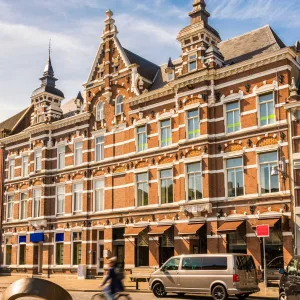
Everything in one convenient overview? Download our brochure
BENG insulating glass: the technology behind it
Whereas traditional insulation glass works with a gas-filled cavity and a minimum glass thickness starting at about 21 mm, BENG glass works with a full vacuum and a total glass thickness starting at only 8.3 mm. It consists of two tempered glass sheets at least 4 mm thick, separated by a vacuum cavity of only 0.3 mm. Small spacers hold the glass sheets in place and distribute pressure during the vacuum process so they do not break.
The vacuum virtually blocks heat loss through conduction and convection. A heat-reflective coating also prevents heat radiation from escaping. Thus, BENG glass performs demonstrably better than any other type of insulating glass with minimum glass thickness.
So you can keep your existing frames and benefit from up to 3× better insulation and a 2× longer lifespan than regular insulation glass.

BENG glass: the most powerful insulating glass
Where vacuum glass already clearly outperforms regular insulation glass, our manufacturer LandVac takes this performance to an even higher level. LandVac has been supplying vacuum glass in more than 50 countries since 2016. With a background in toughening furnaces and 429 registered patents, their expertise is unmatched in the world of insulating glass.
What makes BENG glass insulation glass unique?
- Worldwide the best insulation value: from U=0.35
- Extra sound insulation: from 36 dB, rising to 42 dB in laminated glass
- Titanium processing for long-lasting performance and a stable vacuum
- Up to 7× fewer spacers in non-reflective anthracite
- Toughened vacuum glass according to NEN 3569 - safe and resistant to thermal fluctuations
- Strict quality control per pane
- Additional options possible - patterned glass, fire-resistant, monumental, hybrid or laminated insulating glass.
- 20-year warranty and an expected lifetime of up to 50 years
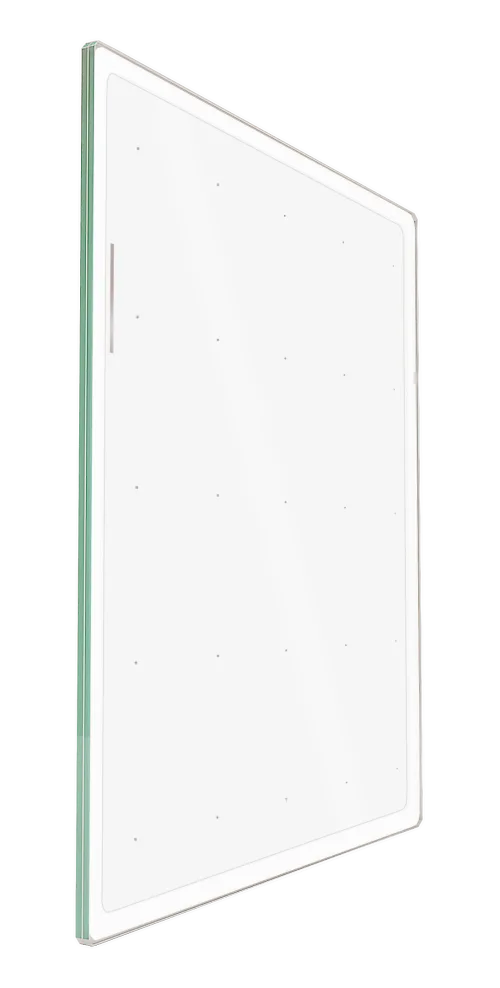
Recommended products

Find a certified installer
BENGglas has an extensive network of over 150 certified installers across Europe, specializing in vacuum glass installations. This way, you’re always assured of a professional close to home! Want to get the best deal easily? Fill out our quote form and receive three competitive offers from the three nearest BENGglas dealers in your area!
Insulated glass for greater comfort and lower energy costs
Insulating glass keeps heat inside and cold outside better. This is immediately noticeable in a more pleasant indoor climate and lower energy bills. Where single glazing loses a lot of heat, insulating glass makes your home or building a lot more comfortable.
Nowadays there is more choice than ever. From traditional double-glazing such as hr++ and triple-glazing, to modern solutions such as the vacuum glass from BENGglas, which allows you to get even more out of your insulation - without having to make major modifications.
BENG glass goes much further than traditional insulation glass. Thanks to vacuum technology, it performs at a level that HR++ and HR++ cannot match.
- Exceptionally low U-value from 0.35
Much better than HR++ (U=1.10) and HR+++ (U=0.70). Heat loss through the cavity is almost impossible. - Strong sound insulation
Up to 36 dB noise reduction, higher than standard insulation glass. - Slim, light and fits into existing frames.
Ideal for renovation without demolition. - Up to 50 years of service life
About twice as long as HR++ or HR+++. - Sustainable choice
Less heat loss means less energy consumption and less CO₂ emissions.
So BENG glass offers all the benefits of insulation glass, but with a much higher insulation value, longer lifespan, lower Co2 footprint and more comfort.
What types of insulating glass are there?
The strength of insulation glass is reflected in the U-value. The lower the number (which indicates the insulation value), the better the insulating effect and the more comfort and savings you will achieve.
We briefly explain the different types of insulating glass.
Standard double glazing
Standard double glazing consists of two panes of glass with an air-filled cavity. This type of insulation glass has a U-value of 2.7 and is a clear improvement over single glazing(U=5.8).
HR++ insulation glass
HR++ insulation glass also has two layers of glass, but the cavity is filled with noble gas instead of air as in old double-glazing. In addition, one glass layer has a heat-reflective coating. As a result, heat stays inside better and the U-value is lower than with standard double-glazing. HR++ glass is widely used in new construction and larger renovations and has a U-value of 1.10.
Disadvantages of HR++ glass can be:
- Lower insulation strength than triple and vacuum glass (BENG glass).
- Lifetime up to 30 years compared to 50 years for vacuum glass (BENG glass)
- Not always fitting into existing window frames
- Up to 60% degradation of U-value in horizontal inclination
Triple glazing (triple insulation glass)
Triple glazing consists of three layers of glass with two gas cavities between them. This provides even better insulation than HR++ glass of U=0.70. Because of the extra layer of glass, triple insulating glass is especially suitable for homes and properties with deep, modern window frames.
Disadvantages of triple glass may include:
- A thick glass structure
- More weight, mechanical and expensive installation
- Not suitable in existing window frames
- Lifetime up to 30 years compared to 50 years for vacuum glass (BENG glass)
- Up to 40% degradation of U-value in horizontal inclination
Vacuum glass from BENG glass
Want maximum insulation with minimum glass thickness? Then vacuum glass from BENGglas is the most advanced form of insulating glass. Instead of air or gas, there is a vacuum between the glass layers. This makes it virtually impossible for heat and sound to travel.
Advantages of BENG glass vacuum glass:
- Very low U-value from U=0.35: up to 3x better than hr++ glass and 2x better than triple glass
- Fits into existing window frames
- Lifetime up to 50 years
- Suitable for both residential and commercial properties
How can I order BENG glass insulation glass?
BENGglas delivers the vacuum glass directly if you only need glass, without assembly. You can then easily contact us at [email protected]. Do you also want to have the glass professionally installed? Then we advise you to use our dealers - experienced professionals who know exactly how to work with BENGglas!
Use our handy quote form to easily request 3 quotes from authorized dealers in your area. That way you'll quickly get a fair price overview and choose the professional that suits you best!
Already have a local glazier you want to work with? Then feel free to ask him to contact us directly!
What is the best insulating insulating glass?
The strength of insulating glass begins with its U-value. This number indicates how much heat is lost per second per square meter of glass surface. The lower the U-value, the better the glass insulates - and the more energy (AND cost) you save.
When it comes to the best insulating form of insulating glass, vacuum glass - and specifically BENG glass - is the absolute leader at the moment. Whereas traditional types of glass such as HR++ and triple insulation glass still work with a gas-filled cavity, vacuum glass uses a complete vacuum between the glass panes. This makes it almost impossible for heat to escape.
The U-value is determined by three things:
- the number of layers of glass
- the filling between the glass panes (air, gas or vacuum)
- and the quality of the heat-resistant coating (low-e)
insulation value of different types of glass:
- Single-pane glass - U-value: 5.8
- HR++ glass: U-value ± 1.1
- Triple glazing: U-value ± 0.7
- Vacuum glass / BENG glass: U-value 0.35 - 0.50
Why BENG glass is the best insulating insulation glass:
- The ultra-thin vacuum cavity prevents heat loss through conduction and convection
- The heat-reflective coating blocks heat radiation
- The glass maintains stable performance even in horizontal inclination
- It fits into existing window frames without modification
- Service life is up to 2× longer than standard insulating glass
Conclusion
The best insulating insulation glass today is vacuum glass, with BENG glass being among the top worldwide. You benefit from lower carbon emissions, less use of materials, lower energy costs, an improved energy label while being able to keep your existing window frames.
What is the U-value of insulation glass in combination with window frames?
The U-value of insulation glass is important, but ultimately what counts is the total frame system (Uw-waarde). The material of the frame (wood, plastic or aluminum) and its thermal properties affect the final insulation value.
Below you can see what to expect from BENG glass in different types of window frames:
Wooden or plastic frames
- BENG glass Extra Clear: Uw value of 1.2 W/m²K
- BENG glass Single Coated, Double Coated or Triple Coated: Uw-value of 1.1 W/m²K
Aluminum frames (thermally broken)
- BENGglas Extra Clear: Uw-waarde of 1.6 W/m²K
- BENG glass Single Coated, Double Coated or Triple Coated: Uw-value of 1.5 W/m²K
Aluminum frames (not thermally broken)
- BENGglas Extra Clear: Uw-waarde of 2.7 W/m²K
- BENG glass Single Coated, Double Coated or Triple Coated: Uw-value of 2.6 W/m²K
Tip: with aluminum, always choose a thermally broken profile for the best insulation. This way you get the maximum return from your BENG glass.
Please note, the above Uw-waardes are all based on fixed values. In practice, these values can be considerably lower. Always check with your frame supplier about this.
How is insulating glass constructed?
Structure of standard insulating glass
Traditional insulating glass consists of at least two panes of glass: an inner pane and an outer pane. Between these glass layers is a cavity filled with air or gas. It is precisely this cavity that largely determines how well the glass insulates.
The width of the cavity is crucial. Common sizes are 7, 10, 12, 13 or 15 mm. In general, the wider the cavity, the better the insulation - up to a certain maximum.
Vacuum glass from BENG glass: maximum insulation, minimum thickness
Vacuum glass from BENGglas works fundamentally differently. The glass consists of two panes of at least 4 mm thick, with a vacuum cavity of only 0.3 mm between them.
Despite this extremely thin construction, BENG glass insulates up to 2× better than triple glazing and even 3× better than HR++ glass.
The reason: due to a vacuum, heat or cold can hardly move. As a result, heat conduction is effectively blocked.
With a total glass thickness of only 8.3 mm, BENG glass almost always fits into existing window frames, while achieving a U-value as low as 0.35.
Need thicker insulation glass? BENG glass grows with you
Does your window frame have a wide rebate or require additional glass thickness? Then BENG glass can be easily adapted, without compromising on insulation.
Thicken
Thickening involves adding an extra air-filled cavity and an extra layer of glass to the vacuum glass. You can choose from different cavity and glass thicknesses. Indicate what thickness you need, and we will put together the right glass assembly.
Layers
With layers, an extra layer of glass is combined with a special film (EVA, PVB or SGP). This film holds the glass together when broken, making it fall-through-safe.
In addition, this construction immediately provides better sound insulation: from 36 dB to at least 39 dB. With acoustic foils, this can even rise to 42 dB for extra peace and quiet in the home. The minimum glass thickness with layers is 13.06 mm. Still looking for a different thickness? Tell us what thickness you need, and we will put together the right glass composition.
Not every frame is the same. Therefore, insulation glass from BENG glass can easily be adjusted when additional glass thickness is desired.
Thickening involves adding an additional air-filled cavity and an extra layer of glass to the vacuum glass. You can choose from various combinations of cavity and glass thicknesses. This way, the insulation glass fits perfectly on frames with a wide rebate.
What are the applications of insulation glass - and where does BENG glass come into its own?
Building smarter starts with revolutionary insulation glass. Whether it's renovation, new construction or commercial construction, BENG glass's vacuum glass makes all the difference. Thanks to the ultra-thin vacuum technology, an impressively low U-value of 0.35 and the light, slim profile, BENG glass is widely applicable:
- Monumental renovations and restorations
BENG glass is so thin and light that it fits effortlessly into existing window frames - where HR++ or HR++ glass is often too thick or heavy. This allows you to retain the authentic look so characteristic of monumental buildings.
With BENGglas Monu or BENGglas Monu Restover, you also choose a special monument version, which even retains the characteristic undulations of old glass. This preserves the authentic appearance of the historic glass, while giving the building the insulation value of the future. Never before have historic buildings been so energy efficient.
New building projects
Glass takes up a large part of the building envelope - that's where you can gain the most in terms of insulation. With BENG glass, you can save up to three times more energy than with HR++ glass and meet the mandatory BENG standard faster, without the need for heavy heat pumps or other costly additional measures.The glass is lightweight, saving you construction costs and making it suitable for slim profiles and special facade details. In addition, BENG glass lasts up to twice as long as HR++ glass and provides additional noise reduction of up to -39 dB (or more).
On top of that, you opt for significantly lower CO₂ emissions and are immediately prepared for the stricter standards of the future.
- Non-residential buildings and offices
Buildings with a lot of glass often consume extra energy - especially in non-residential construction. BENG glass directly reduces that energy demand, thanks to its extremely low U-value starting at 0.35. That means lower energy costs and a comfortable indoor climate all year round.
Do you opt for extra solar control coatings or noise reduction up to 39 dB? Then you create not only an energy-efficient, but also a quiet and pleasant workplace.
- Future-proof or energy-positive construction
With an expected service life of 50 years, low environmental impact and the best insulation value on the market, BENG glass is the choice for sustainable construction. Substantially fewer emissions, less replacement and years of lower energy costs.
Up to 20 times longer lifespan than standard insulation glass with BENG glass
Whereas the insulating effect of traditional insulating glass (such as in high-efficiency double-glazing / triple-glazing) can slowly diminish due to damage to the seals, allowing moisture and air to penetrate, this is not the case with vacuum glass.
The edges of BENG glass are fused and sealed with a patented titanium edge seal. This allows you to benefit from twice the lifespan of vacuum glass , up to 50 years. Traditional insulation glass has a maximum lifespan of up to 30 years.
Our patented titanium technology:
Because the edges of BENG glass are fused, with BENG glass you avoid corrosion and cracking even under the harshest conditions. The use of titanium is patented and offers not only longer life but also maximum insulation performance:
- 70% less heat conduction due to titanium spacers
- Longer service life thanks to titanium absorption strip
- 90% less stress, 40% stronger thanks to flexible titanium edge seal
- Extra resistance to corrosion and wear, even under the harshest conditions
You choose titanium. Then you choose maximum lifetime and insulation strength!
What is the impact on insulation value of a slope angle in insulating glass?
The tilt angle of insulation glass can have a major impact on its insulation value (U-value). With traditional insulation glass, performance deteriorates significantly once the glass is sloped - in some cases up to 60% loss.
With vacuum glass , this does not happen.
BENG glass retains its insulation value completely regardless of the slope angle. Whether you apply the glass vertically, at an angle or even horizontally: the U-value remains the same.
The data below shows how much traditional glass deteriorates at different slope angles, while BENG glass remains stable (Source: Glass in Picture, Dec 2024):
Inclination angle: U-value Double glass (6-12-6) / triple glass (4-15-4-15-4) - BENG glass (4-0.3-4):
- 90 degrees (vertical): 1.1 / 0.7 / >0.35
- 60 degrees: 1.4 / 0.8 / >0.35
- 45 degrees: 1.5 / 0.9 / >0.35
- 10 degrees: 1.6 / 0.9 / >0.35
- 0 degrees (horizontal): 1.6 / 1.0 / >0.35
In short, the drop for triple-glazing is just over 40% and as much as 60% for double-glazing. With BENG glass, the insulation value always remains the same regardless of the angle of inclination!
Difference between spacers in vacuum glass and regular insulating glass
Spacers in vacuum glass
In vacuum glass, such as BENG glass, the glass sheets are under high pressure during the vacuum process. Without support, they would be pressed together and break. This is why there are always small spacers in vacuum glass, in all brands. These dots are spread across the glass surface and ensure that the pressure is evenly distributed.
Spacers in insulation glass
In insulation glass, the cavity is much wider (12-20 mm) and there is no vacuum pressure. Therefore, there are no dots in the glass field, but a continuous spacer along the edge of the glass package.
Main differences
- Vacuum glass has spacers in the glass surface, insulation glass only in the edge
- The dots in vacuum glass are microscopic, making the glass package much thinner (from 8.3 mm)
- In vacuum glass, the spacers are needed to absorb high pressure; in insulating glass they are not
Why BENG glass excels at this
- Up to seven times fewer spacers than other vacuum glass brands
- Fewer spacers means better insulation because each spacer forms a small cold bridge
- Non-reflective anthracite spacers that are barely noticeable even in bright sunlight (barely visible from 2-3 meters), unlike transparent dots that actually reflect light back
What subsidies apply to insulation glass in the Netherlands and Belgium?
There are attractive subsidies on insulating glass. We briefly explain the possibilities here.
Netherlands:
Thanks to the Sustainable Energy and Energy Saving Investment Subsidy (ISDE), you can get an attractive allowance when you make your home more sustainable with insulating glass.
Subsidy for BENG glass
The following amounts apply for BENG glass:
- € 25 per m² when you only replace the glass (report code: KA18780)
- € 111 per m² when you also install new window frames (report code: other).
- € 46 per m² when you live in a national monument and replace the glass.
Do you also take another insulation measure, such as roof, wall or floor insulation? Then the subsidy is doubled.
Not sure if your home is a national monument? You can easily check via RVO.nl.
For entrepreneurs
Would you like to make your business premises more sustainable? Then you can use the Energy Investment Allowance (EIA). This allows you to get up to € 300 per square meter in tax benefits. The minimum investment is € 2,500. Do not forget to submit the application within three months after installation via the eLoket of RVO.nl.
Subsidy for traditional insulation glass as of January 1, 2025.
There are also allowances for regular insulation glass:
- HR++ glass: € 25 per m² (for one insulation measure)
- Triple glazing: € 111 per m² (for one insulating measure, only if you also replace your window frames)
Important rules (ISDE.nl):
- Minimum surface area: For the subsidy, you must install at least 3 m² of insulation.
- ISDE scheme: You can apply for this subsidy via the Rijksdienst voor Ondernemend Nederland (RVO).
- Second measure: If you have a second insulating measure carried out in addition to glass insulation (such as cavity wall, facade or roof insulation), the subsidy amount per square meter is increased.
- Local subsidies: In addition to the national ISDE subsidy, local subsidies may also be available through your municipality or province.
Belgium:
Do you live in Flanders? Then there is good news! When renovating your home or building, you can take advantage of the renovation grant. Do you replace your old glass with BENG glass? Then you get as much as €16 per m² back!
Subsidy application? Super easy:
- Have BENG glass installed by an authorized dealer or contractor.
- Apply for the premium via the online counter at Vlaanderen.be.
- After installation, you get a certificate from the contractor, which you use with your application.
Saving money can be that simple!
The subsidy for standard insulation glass?
This is also at €16 per square meter for high-efficiency glazing (HR++).
- Maximum subsidy: The premium is capped at a maximum of €600 per home.
- Maximum area: The subsidy is granted for a maximum of 20 m² of glass.
More info on subsidy? Read it here.
What is the guarantee of BENG glass?
At BENG glass, we look further ahead. Because our insulation glass has an expected lifespan of about 50 years, we give you up to a 20-year warranty - that's more than twice as long as HR++ or HR+++ insulation glass.
What is covered by the warranty?
- 20-year warranty on the basic range, without additional layers or hybrid applications
- 10-year guarantee on laminated versions
- 5-year warranty on fire-resistant versions
- 5-year warranty on BENG glass Monu Restover
The warranty means that we redeliver your BENG glass free of charge if it loses its insulating performance within the warranty period. So you can be assured of good performance for years to come.
Want to know more?
You can find all the details in our warranty conditions under ''documentation''.
Frequently asked questions
What are the differences between vacuum glass (BENG glass), triple glass and HR++ glass?
Vacuum glass works in a different way than traditional insulating glass. Whereas HR++ and triple glass use air or gas between the panes of glass, with BENG glass the cavity is completely evacuated. This provides performance that simply cannot be achieved with regular insulation glass. Here are the main differences:
1. By far the best insulation value available
BENG glass offers the best insulation value worldwide. You save more heat and increase comfort in your home.
- BENG glass: U=0.35
- HR++ glass: U=1.10
- Triple glazing: U=0,70
2. Fits into existing window frames, preserving authentic appearance
BENG glass is extremely thin and almost always fits into existing window frames. HR++ and triple glass are much thicker and often require replacement of your window frames. So with BENG glass, you preserve the appearance of your building while enjoying impressive insulation performance:
- BENG glass: 8.3 mm
- HR++ glass: 21 mm
- Triple glazing: 38 mm
3. More daylight and extra clear glass (LTA).
Because BENG glass is so thin, the glass remains beautifully clear. Despite its extremely good insulation value, it lets in up to 15% more daylight than triple glazing, for example. There are variants that are extra clear or sunproof, depending on your needs.
- BENG glass: >83%.
- HR++ glass: >80%.
- Triple glazing: >65%.
4. Stable performance with horizontal installation
With BENG glass, the insulation value always remains stable even when the glass is placed at a horizontal inclination. With traditional insulation glass, the performance drops significantly.
- BENG glass: remains stable
- HR++ glass: up to -60%.
- Triple glazing: up to -40%.
5. Maximum noise reduction
BENG glass delivers strong performance at all pitches. With a laminated version or acoustic foils, the attenuation can increase even further.
- BENG glass: 36 dB (-2; -3). Laminated up to 39 dB, with acoustic foils up to 42 dB.
- HR++ glass: 31 dB (-1; -4)
- Triple glazing: 33 dB (-2; -6)
Based on the above data, HR++ usually attenuates between 30 and 37 dB and triple glass between 31 and 27 dB, with low tones in particular being less well attenuated. BENG glass remains stable around 34-33 dB and therefore performs broadly. In laminated versions or with additional acoustic foils, this BENG glass increases further.
6. Lifetime
The performance of BENG glass remains at the same level for decades, without relapse.
- BENG glass: up to 50 years stable
- HR++ glass: 20-25 years, with gradual decline in U-value
- Triple glazing: ± 30 years, with gradual decline in U-value
How do I apply for a grant?
ISDE subsidy for individuals and companies
Do you want to apply for the ISDE subsidy through RVO.nl? Then make sure you have the following items to hand:
- An invoice with a report code, the contact details of the installation company and the date of purchase and installation.
- Photos of the installation, plus proof of payment.
- The number of square meters of glass you had installed (note: do not include extensions).
Important: you must submit your application within 24 months of installation.
EIA subsidy for business customers
Do you have a business? Then you must apply for the EIA subsidy within 3 months after installation via the eLoket of RVO.nl. Make sure you have everything ready on time so you don't miss out on any benefits.
Subsidy in Belgium
Do you live in Flanders? Then simply apply for your renovation subsidy through the online counter at Vlaanderen.be. You will need the certificate of your approved contractor.
How do I request a vacuum glass quote?
At BENGglas, we understand that you don't want to spend a long time getting an honest price comparison.
By filling out our quote form , you will immediately receive three quotes from three authorized dealers in your area. These quotes include both delivery and installation of the vacuum glass.
Would you still prefer to decide yourself from whom you get a quote? That's easy, too.
Useour Dealer Finder byentering your zip code. You will then immediately get an overview of BENG glass dealers in your area, including their contact details and their own page with a quotation form. If desired, additional work, such as painting, can also be included. In this way, our dealers always offer a complete total solution.
All BENG glass dealers have sample windows, so you can view the glass and make an informed choice. You are also welcome to visit our showroom by appointment to experience the possibilities in person.
Is there no dealer near you? Then ask your local glazier to contact BENGglas at [email protected].
How do I claim warranty with BENG glass?
We make every effort to deliver your BENG glass perfectly and carefully check each pane for insulation value before it leaves the factory. Still, sometimes something can go wrong, for example during transport or installation. No worries! We are ready to help your glazier quickly and properly.
Important: did you order your BENG glass through a glazier? Then the warranty application always goes through them. Did you order directly from us? Then you can contact us directly.
For fast and smooth warranty processing, we need the following information:
- Company name and contact person
- Order number
- Dimensions of the defective window (height x width)
- Short description of the problem
- Photos of the entire window, preferably from the inside
- Close-up pictures of the defect, also from the inside
The clearer the information, the faster we can help you with the warranty request. As soon as we receive the request, we will contact you as soon as possible and arrange the next steps together.
Can I order BENG glass directly or do I have to go through a dealer?
BENGglas delivers the vacuum glass directly if you only need glass, without installation. Want to have the glass professionally installed as well? Then we advise you to use our dealers - experienced professionals who know exactly how to work with BENGglas.
Use our handy quote form to easily request 3 quotes from authorized dealers in your area. That way, you'll quickly get a fair price overview and choose the professional that suits you best!
Already have a local glazier you want to work with? Then feel free to ask him to contact us directly!
References
Are you curious about where vacuum glass is already being used? Check out our references and discover how BENG glass is being used in all kinds of projects - from listed buildings and protected heritage sites to sustainable new construction, canal houses and sleek offices.
In this way, we are helping window by window to create energy-efficient buildings with fewer CO₂ emissions.
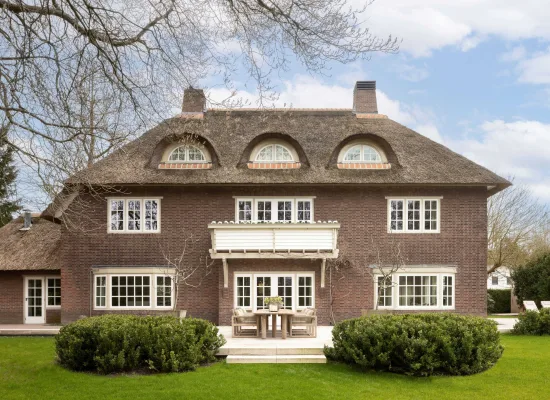
BENGglas in ‘The Art of Living’ with the sustainability of a 100-year-old building
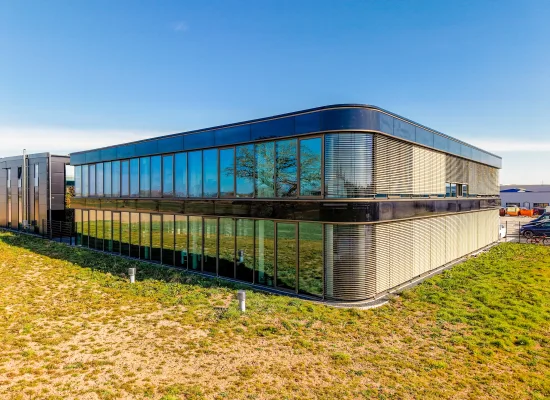
Sustainability of modern office building
